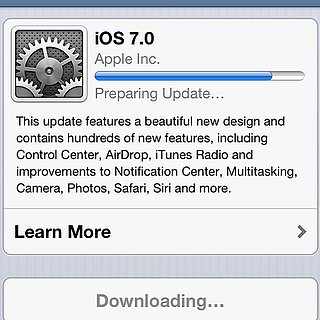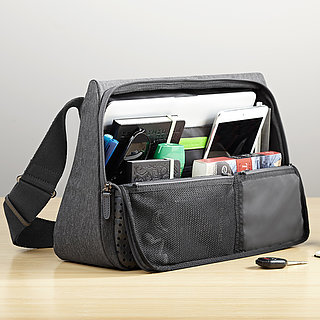Facebook in China
Twitter and Facebook Censorship Around the World
China made an unprecedented move today opening the gates to Facebook, Twitter, and The New York Times. The lift only affects the mainland's limited Shanghai Free-Trade Zone, but it's an important step towards a more free and open Internet worldwide.
Censorship still affects many countries around the world. Insecure governments shut down social media sites to prevent grassroots uprisings, and oppressive leadership often keeps citizens' online activity under surveillance to control public opinion. Restricting Internet access is driven by various political, social, and national security issues — and, as cybercitizens, it's important to be aware of censorship policies around the world and how that may affect media coverage and international travel.
OpenNet Initiative is an organization whose mission is to investigate and expose Internet filtering around the world, and we've broken down areas with the highest levels of denied access, according to the site. If globetrotting is in your future, be mindful of censorship policies in these countries:
- People's Republic of China — While the Shanghai Free-Trade Zone will soon be free to use social media, heavily restricted access will remain for most of the country. Due to the rural/urban divide, there is a huge disparity between those with access to Internet and those without. The Great Firewall of China blocks major platforms such as Facebook, Twitter, and Blogspot. Wordpress blogs whose content reflected political dissent were also blocked. Media sites such as BBC Asia Pacific, Radio Free Asia, Amnesty International, and Voice of America were extensively filtered.
- Russia — In March 2013, the government passed legislation that allowed for the regulation of content deemed harmful to children. Facebook and Twitter began complying with Russian takedown requests, and many fear that this new law will pave the way for broader Internet censorship.
- Vietnam — The regulation of Internet access is not consistent throughout the country, and websites are more open in some areas than others. As a communist country, restrictions are set up by the state, which has been known to pursue citizens who access "politically sensitive sites." ISPs were found to block Facebook as well as Human Rights Watch, but the websites of other international human rights groups were accessible.
- Burma (Myanmar) — Yatanarpon Teleport, the country's Internet service provider, does not allow access to YouTube, Flickr, Twitter, My Blog log, and filters free email services as well as blogging platforms like Blogger, LiveJournal, and WordPress.
- Iran — The country's constitution reads, "[The media] must strictly refrain from diffusion and propagation of destructive and anti-Islamic practices." Freedom of speech is extremely limited in the country. Some independent sources of news and opinion, such as Iranian.com and roozoonline.com are blocked, as well as the sites of several ethnic and religious minorities. Content relating to sexuality, as well as social media sites including MySpace, Flickr, and Orkut.com are also blocked. As of Sept. 17, restrictions to Facebook and Twitter have been restored in Iran.
- Egypt — Freedom of the press is the greatest limitation in the country. In 2011, during the height of the Arab Spring, social media websites including Twitter, YouTube, Hotmail, Google, and Baidu were shut down in the country. Today, Facebook and Twitter are free to use, but monitored by the government. Bloggers and Facebook users have received jailtime as a result of political dissent on social media, reports Reporters Without Borders.
- Belarus — Internet cafés are the most monitored points of access in the country, which bans sites relating to pornography and terrorism. In 2012, Belarus closed off access to foreign websites including Amazon, the Apple store, and eBay.
- Syria — In June 2011, authorities cut off communication via the Internet completely. Although access was eventually restored, connection speeds are slowed down regularly. Web access and mobile phone access are temporarily suspended from time to time. Satellite phones can circumvent this issue.
- Turkmenistan — This closed society has opened the Internet to only a small amount of its citizens who can only access the web via the state-controlled Turkmenet. Human rights organizations, Facebook, Twitter, and YouTube cannot be viewed through this cyberfilter.
- Uzbekistan — In 2011, Reporters Without Borders listed the country as one of its Internet enemies and called the country "one of the most net-repressive." Filtering, connection speeds, surveillance, and propaganda are a few of the reasons why Uzbekistan made it onto the list.










0 Comments